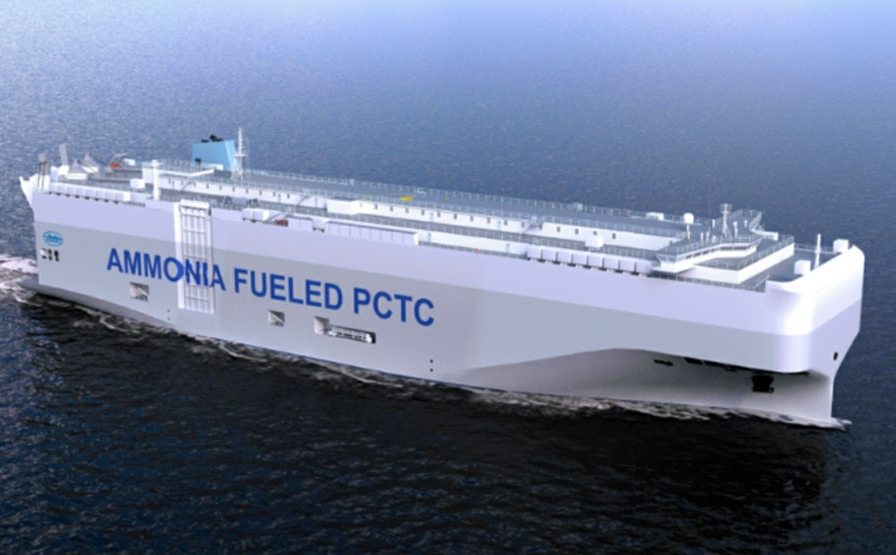China State Shipbuilding Corporation (CSSC) on Monday (21 March) said its subsidiary has recently received an Approval-in-Principle (AiP) certificate from classification society DNV for an ammonia-fuelled 7,000-unit capacity car carrier (PCTC).

The vessel design was independently developed by the China Shipbuilding Corporation Shanghai Ship Research and Design Institute.
“This ship type is expected to become the iconic green ship type of the new generation of zero-carbon vehicle carriers,” it notes.
A total of five types of liquefied natural gas (LNG) dual-fuel powered PCTCs have been developed by CSSC, which has encountered more than 40 orders for the vessels to date.
Among them is a 7,000 vehicle-capacity LNG dual-fuel PCTC ordered by China Merchants Jinling Shipbuilding (Nanjing) Co., Ltd. last year and a 7,600 vehicle-capacity LNG dual-fuel PCTC ordered by Jiangnan Shipbuilding (Group) Co., Ltd. this year.
Further, CSSC has received awards and made breakthroughs with its PCTCs.
In September 2021, the 7,500 vehicle-capacity LNG dual-fuel PCTC “SIEM CONFUCIUS” designed by Shanghai Shipyard and built by Xiamen Shipbuilding Industry Co., Ltd. won the 2021 Shippax Deep Sea Ro-Ro Ship Best Environment Award.
In November 2021, the PCTC “Auto Advance”, the world’s first 3,600 vehicle with LNG dual fuel + battery hybrid + EMS energy management and control system designed by Shanghai Shipyard and built by Jiangnan Shipbuilding, was also successfully delivered.
“As we all know, the introduction of low- and zero-carbon alternative fuels in the shipping and shipbuilding sectors is an urgent need,” shares CSSC.
“Ammonia combustion does not produce carbon dioxide, and is expected to become one of the alternative bunker fuel options favoured by the marine industry, with broad commercial application prospects in the future.
“At present, ammonia fuel-powered ships have become the focus of common attention and research in the shipbuilding industry of China, South Korea, Japan and Europe.
“On the basis of this AiP, the Shanghai Shipyard will continue to work hard, concentrate on research in the field of battery hybrid power and other low-carbon and zero-carbon new energy, strive for new breakthroughs, continue to deepen the green PCTC market, and provide zero-carbon for the global shipping industry while contributing to the development of more ‘Chinese solutions’.”